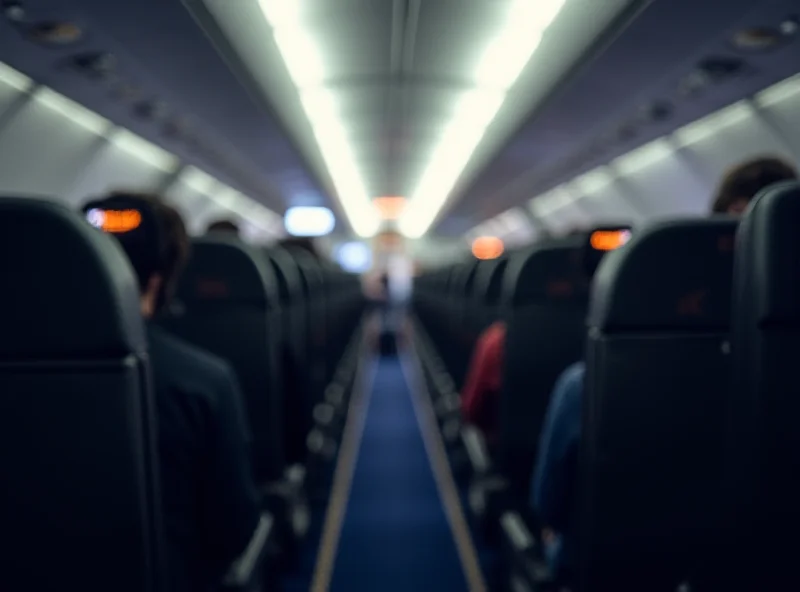Imagine settling into your seat on a long-haul flight, ready for some rest, only to discover you're sitting next to a deceased passenger. That's the reality an Australian couple faced on a recent Qatar Airways flight to Doha.
According to reports, the passenger passed away mid-flight. What followed was, according to passengers, a series of unsettling decisions by the crew. "She was quite a big lady and they could not carry her through the aisle," one passenger recounted, suggesting the crew struggled with the logistics of moving the body.

Four Hours of Unknowing Discomfort
The most disturbing aspect of the incident is that the Australian couple reportedly sat next to the deceased for a staggering four hours before realizing what had happened. It's unclear exactly when the passenger passed away during the flight, but the duration of the ordeal is undeniably shocking.
The crew eventually repositioned the body within the same row. The details surrounding the incident are still emerging, but the incident has sparked outrage and raised questions about airline protocols for handling passenger deaths mid-flight.

Qatar Airways Issues Apology
In the wake of the incident, Qatar Airways issued a statement apologizing for the distress caused to the passengers. While the airline hasn't released specific details about the event, their apology acknowledges the severity of the situation and the impact on those involved.
This incident highlights the challenges airlines face when dealing with unexpected passenger deaths and the importance of clear protocols and compassionate handling. The Australian couple's experience serves as a stark reminder of the potential for unforeseen and deeply unsettling events during air travel.

"We understand the gravity of this situation and deeply regret the distress caused to our passengers," the Qatar Airways statement reportedly said.
The incident has prompted calls for greater transparency and clearer guidelines for airlines regarding the handling of deceased passengers, ensuring that such situations are managed with dignity and sensitivity in the future.
